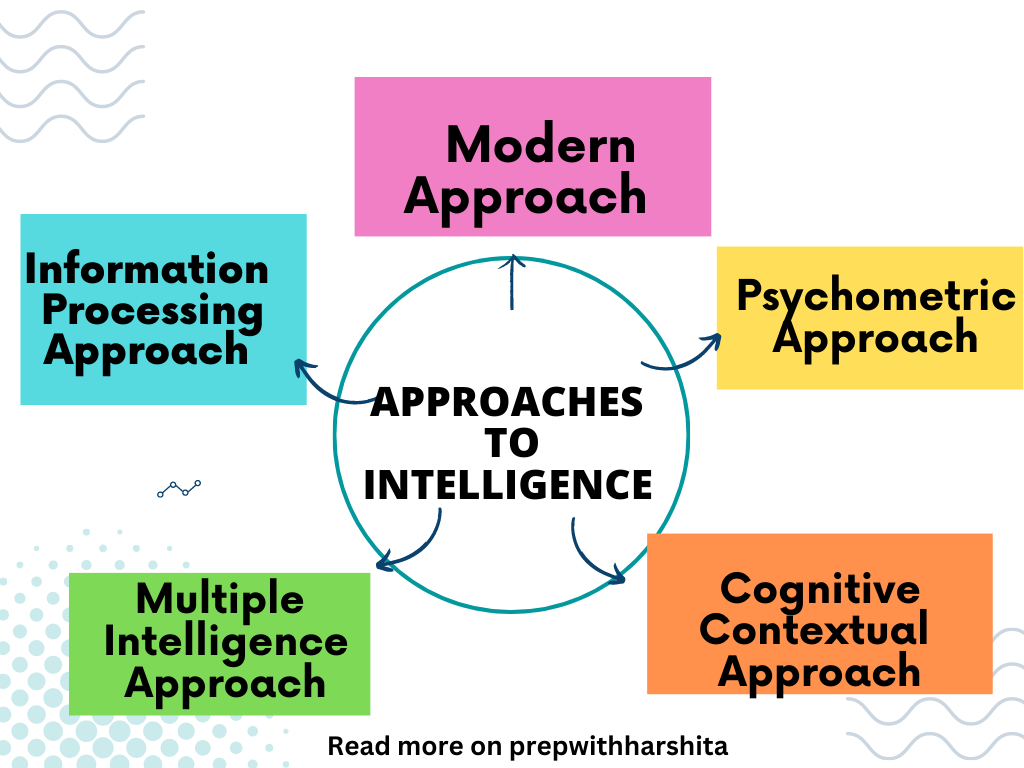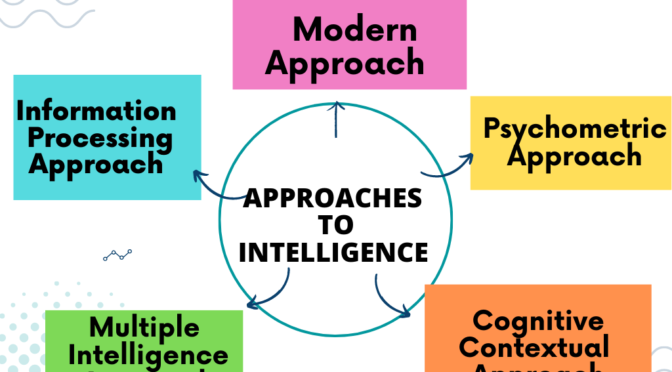There are various approaches to intelligence that have been proposed by psychologists and researchers over the years.
Some of the major approaches to intelligence include:
- Psychometric approach: This approach is perhaps the most well-known and widely used approach to intelligence. It is based on the idea that intelligence is a measurable quantity that can be assessed using standardized tests. Psychometric tests typically measure an individual’s cognitive abilities in areas such as verbal and mathematical skills, reasoning, and problem-solving. Examples of psychometric tests include IQ tests and the SAT.
The psychometric approach is useful in that it allows for the objective and reliable assessment of intelligence, and it has been shown to be a good predictor of academic and job performance. However, critics argue that the psychometric approach places too much emphasis on cognitive abilities and overlooks other important aspects of intelligence, such as emotional and social skills.
- Information-processing approach: This approach views intelligence as a set of mental processes that allow individuals to perceive, reason, and learn. It focuses on how people acquire, process, and use information to solve problems and make decisions. The information-processing approach is useful in that it allows researchers to study the underlying cognitive processes involved in intelligent behavior.
- Multiple intelligences approach(System Approach ) : This approach proposes that intelligence is not a single, unitary construct, but rather a collection of different abilities that are independent of each other. Gardner’s theory of multiple intelligences, for example, identifies eight different types of intelligence, including linguistic, logical-mathematical, spatial, bodily-kinesthetic, musical, interpersonal, intrapersonal, and naturalistic.
The multiple intelligences approach is useful in that it acknowledges the diversity of human abilities and talents, and it has been influential in education and the development of alternative approaches to teaching and learning. However, critics argue that the theory lacks empirical support and that it is difficult to measure and assess the different types of intelligence.
- Cognitive-contextual approach: This approach emphasizes the role of context and culture in shaping intelligence. It recognizes that intelligence is not just a matter of innate abilities, but is also influenced by environmental factors such as education, socialization, and cultural background. The cognitive-contextual approach is useful in that it highlights the importance of considering the broader context in which intelligent behavior occurs.
- Modern Approach : The modern approach to intelligence emphasizes a more comprehensive and multidimensional understanding of intelligence. It recognizes that intelligence is not simply a matter of cognitive ability, but is also influenced by emotional, social, and cultural factors.
Also Read : Factor Affecting Intelligence

Also Visit : Prep with Harshita

